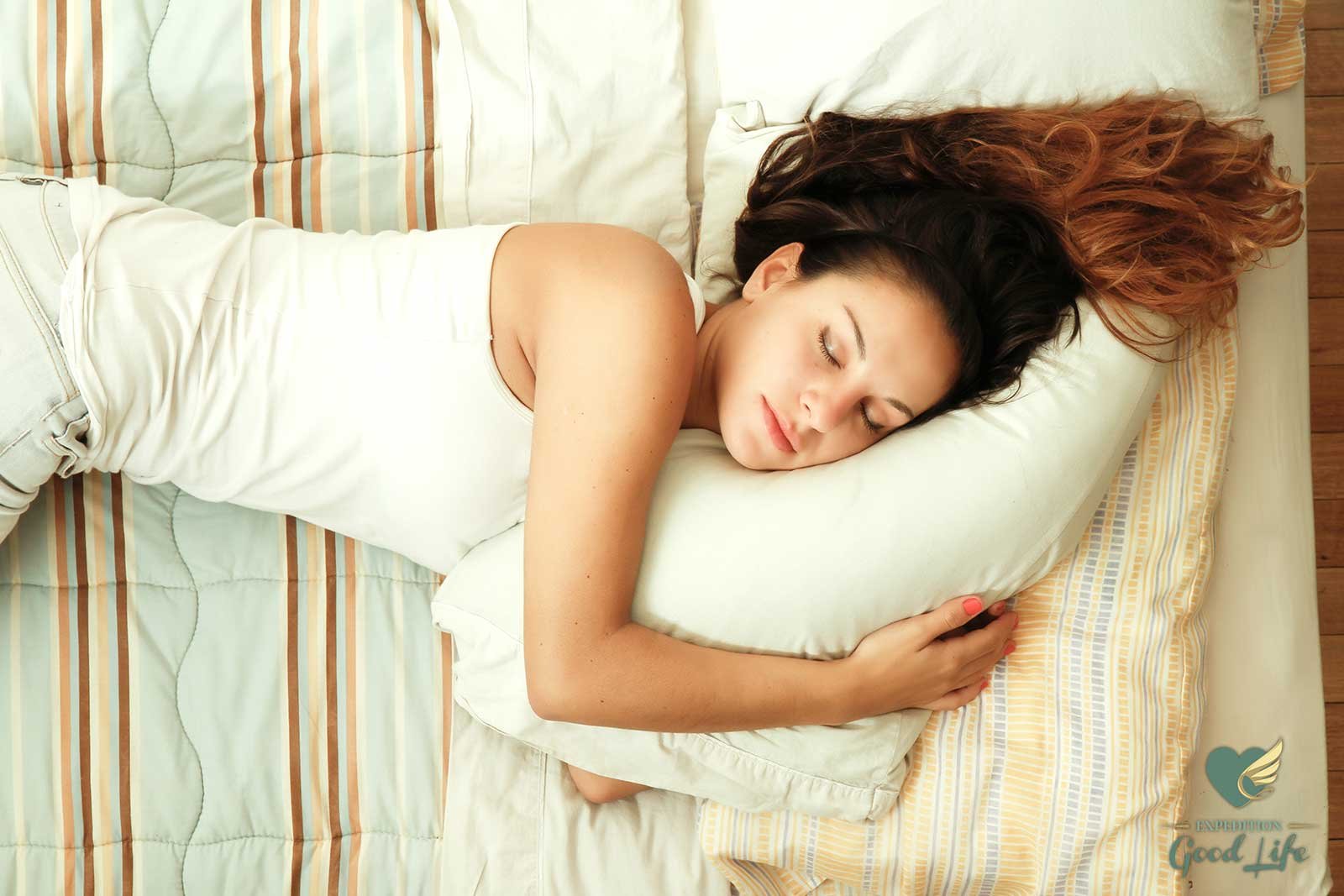Understanding Sleep and How it Affects Our Health
[vc_row][vc_column width=”1/1″][vc_column_text]
History of Sleep Finding Its Importance
It was around the 1950’s when researchers began to study the importance of sleep to a person’s health. In 1952-1953 REM (rapid eye movement) sleep was discovered and researcher’s realized that there was more to sleep than it just being a passive, dormant part of our daily lives. The field of Chronobiology (Chronobiology is a field of biology that examines periodic (cyclic) phenomena in living organisms and their adaptation to solar– and lunar-related rhythms, Wikipedia ) in the 1960’s, along with the discovery of REM sleep were the first steps to the medical community recognizing the importance of sleep to patients. Sleep Apnea was first described in 1965 and the medical community began to pay attention to sleep disorders. The term “sleep medicine” was coined in the 20th century. This is when researcher’s knowledge of sleep increased and along with knowledge, standards need to be put in place. By the 1970’s clinic’s and laboratories were springing up in many western nations, and as yet there were no restrictions on the use of the title “sleep doctor.” important facts about sleep were discovered and it became a research field. What is sad is that little has changed and we are now in the 21st century. Sleep is recognized by the medical community as an important aspect of health, but most doctors are not well trained in the medicine of sleep disorders. In a survey conducted in 2002 by Papp et al. of more than 500 primary care physicians they reported their knowledge of sleep disorders as follows: Excellent – 0%; Good – 10%, Fair – 60%; and Poor – 30%. The reason for this disturbing fact seems to be, because patients are reluctant to talk to doctors about sleep problems. This is due to the preconceived notion that treatments for insomnia are ineffective or have more risks involved in the treatment than the patient is willing to take.
How Does Sleep Work?
With that said let’s take a look at sleep and see what we now know about it. Controlling whether we are asleep or awake are neurotransmitters. These chemical signals affect nerve cells (neurons) in the brainstem that connects the brain to the spinal cord. The chemicals or neurotransmitters serotonin and norepinephrine keep parts of the brain active while we are awake and other nerve cells at the base of the brain signal when we should fall asleep. Then the nerve cells “shut off” the signals that keep us awake. Scientists now believe the chemical adenosine builds up in our blood during our waking hours; this causes us to feel lethargic, and then as we sleep this chemical dissipates.
The Five Stages of Sleep
We now know there are five stages of sleep 1,2,3,4, and REM. This sleep pattern progresses 1-4 to REM and then repeats. The average adults sleep is broken down as follows; 50% in stage 2, 20% in REM and the remaining 30% dispersed among the other stages.
Have you ever felt like you were falling while asleep? This is stage 1 and is considered light sleep. This is the stage where you awaken easily, fall back to sleep, and your eye and muscle movement slows. In stage 2 we experience no eye movement and our brain waves slow down with little bursts of sleep spindles (rapid waves). Stage 3 our brain waves slow down even more and they are called delta waves and they are broken up with smaller and faster waves. In stage 4 our sleep pattern is mostly delta waves. In this stage 3 and 4 it is extremely hard to wake up, because you are in deep sleep. You experience no eye movement or muscle activity. REM sleep is very different in its pattern, this is where you have rapid eye movement, breathing becomes rapid and shallow, our arms and legs become temporarily paralyzed and our heart rate and blood pressure rises.
There is a fairly normal sleep cycle that occurs during the night, which starts with the first REM sleep 70 to 90 minutes into our sleep cycle. Each complete cycle will last approximately 90 to 110 minutes. The first phase of REM each night will have a short cycle followed by a long period of deep sleep. Then as the night wears on the REM phase will lengthen as the deep sleep decreases. As morning approaches people will spend most of their sleep cycles in 1, 2, and REM sleep.
Now that we understand a little history of how we got where we are today with sleep and how sleep works, let’s understand why this is so important.
Are You in Sleep Debt?
Sleep deprivation is dangerous to our health, the science is clear and these are some of the facts. The study’s that have been done on rats and sleep deprivation is daunting. Normal rats live for two or three years, while rats that are deprived of REM sleep will only live around 5 weeks and rats deprived of all sleep survive only three weeks.
The normal nightly sleep pattern for an adult is 7 to 8 hours, but the amount of sleep a person needs increase if that person has been deprived of sleep in previous days. What scientists have found is that people who are deprived of sleep are thrown into a “sleep debt” our bodies do not adapt to less sleep. This affects our judgment, reaction time, motor skills, causes brain fog and the list goes on.
The older we get the shorter time we sleep at night, and the causes are unclear. Whether it is just part of the cycle of aging or whether it is medications taken, or illnesses that plague the elderly, science does not yet have the answers. What is clear is that 50% of adults over 65 are not getting enough sleep do to insomnia or other sleeping problems.
What Could Be Effecting Your Sleep That You Did Not Know About?
We know that chemicals in the brain affect our sleep and wakefulness, but what we may not know is foods and medicines can change the balance of these chemical signals that affect how alert we feel. We know that caffeine can help keep us awake for that long trip home when we are overly tired, but you may not know that some diet pills and decongestants can also stimulate parts of the brain and cause insomnia. Did you know heavy smokers often are lighter sleepers, have reduced amounts of REM sleep and wake up after 3-4 hours, because they are having withdrawal issues with nicotine? Be careful with antidepressants, because they can suppress REM sleep. If you are taking antidepressants and are extremely tired please share this with your doctor. If you suffer from insomnia and have a tendency to have a drink before bedtime, because it seems to relax you and help you fall asleep, consider this; alcohol impairs REM sleep and the deeper more recuperative stages of sleep. Alcohol keeps you in the lighter stages of sleep where you can be awakened easily.
Sleep experts say that if you find yourself dragging and tired during the day you are not getting enough sleep. If at night you fall into bed and as soon as your head hits the pillow you are asleep, you are not getting enough sleep. You may even have a sleep disorder like Microsleep, this is when a person is awake and they have brief periods of sleep. This is a sign of sleep deprivation, and a lot people don’t even know they have an issue like Microsleep.
Is Being Exhausted Behind the Wheel Be More Dangerous Then Drinking?
Studies have been done on people experiencing sleep deprivation, using driving simulators that use hand-eye coordination techniques; they found these people scored as badly as intoxicated people. Studies have shown the effects of alcohol are magnified by a sleep disorder. The National Highway Traffic Safety Administration approximates that 100,000 accidents and 1,500 deaths a year are blamed on sleep deprivation. Can you imagine a person having one single drink and being sleep deprived, getting in their car to drive home? The sad reality is this is happening everyday and the person probably doesn’t even know they have a sleep disorder. If you think that cup of coffee is going to do the trick and will keep you awake, think again, because caffeine and other stimulates will not overcome a sleep disorder.
The bottom line is if you are overly tired tell your doctor and if he does not have any knowledge of sleep disorders he can probably direct you to a doctor that does. We now know that doing nothing about a lack of sleep can be detrimental to your health and put you and loved ones in danger.
I gleaned material for this article from the “National Institute of Neurological Disorders and Stroke,” website. The article was titled “Brain Basics: Understanding Sleep.”
Do you have trouble getting a good night sleep? Do you know why? What are some things you do to sleep better at night?
Until next time, enjoying the good life,
Exploring Life’s Possibilities,[/vc_column_text][vc_raw_html]JTNDcCUyMGNsYXNzJTNEJTIyc2lnbmF0dXJlJTIyJTNFTWltaSUzQyUyRnAlM0UlMjA=[/vc_raw_html][/vc_column][/vc_row]

